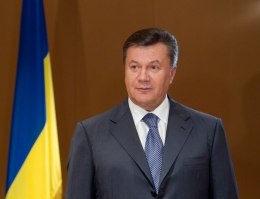Notes from Kraków
How effective are theories as explanatory tools? How strong should our commitments be to certain theories? These questions ignited a vivid debate at the 9th Convention of the Central and East European International Studies Association held at Jagellonian University, Kraków, Poland, September 20-22.
The conference started with an address by Chris Brown of the London School of Economics who attempted to pinpoint the “universal” characteristics of humans and relate them to different understandings of international relations. But if each of these characteristics inevitably requires substantial exceptions, how universal are the values of human rights? How solid are the political grounds for the promotion of universal human rights?
This theoretical prelude framed a more policy-oriented debate on universality, particularity in wider Europe. Piles of articles and books have been written in recent decades to vindicate the EU’s self-portrayal as a unique type of international actor. Perhaps this is not senseless; paradoxically the EUs’ uniqueness can be explained by its ability to incarnate the universal values of democracy.
Yet are we dealing with ability or intention? As Giselle Bosse from Maastricht University disclosed, EU “norm” transfers may only strengthen authoritarian regimes as unintended effects of Brussels’ neighborhood policies. She was not alone in arguing that EU policies in neighboring countries are not about democracy, but rather about governance. This approach is fine when there is a relative consensus with EU partners, but what if this is not the case? Then perhaps the EU has to recognize that the transfer of norms is not simply a technical process – ultimately it’s all about power, which requires using a host of political instruments. Yet this list is actually not very long. It may include sanctions, political isolation of a regime (e.g., Belarus), discontinuation of association talks (e.g., Ukraine), and … what else?
Apparently, Brussels would prefer to avoid using these tools – perhaps, to make its power less visible. In fact, power relations are often intentionally concealed by presumably depoliticized approaches and discourses – in Europe as well as in Russia.
Of course, Russia traditionally asserts its own specificity, allegedly irreducible to experiences of other countries. In this sense, the (pro)Kremlin’s dominating discourses share some similarities with countries like Turkey where post-colonial narratives are quite popular. Yet, as Viatcheslav Morozov from Tartu University suggested, the very fact of possessing a peculiar record of interaction with the outside world does not necessarily presuppose either the need for Russia-specific conceptual and theoretical approaches, or their feasibility. Of course, many in Russia deem that since the world is pluralist, so scientific knowledge has to be pluralist and relational as well – an approach which justifies “our own” assessments of democracy, human rights, transparency, ecological standards, food safety, etc.
Undeniably, pluralism interpretations of the world have to be welcomed: debates between rationalists and constructivists, or realists and idealists, are as natural as indispensable part of international relations as a discipline. But are “national schools” a good and workable idea? I am not completely sure. Moreover, in the Russian context, references to “indigenous specificity” contain a clear political message, since they serve as a pseudo-intellectual pretext for questioning the utility of international standards for Russia and its subsequent isolation from international society. Alas, many mainstream politicians use the academic argument of plurality of the world to politically claim Russia’s impunity and immunity. Perhaps, this is the strongest argument against those who deem that academic theorizing is bereft of practical significance.
Andrey Makarychev is a Guest Professor at the Free University of Berlin, blogging for PONARS Eurasia on the Russia-EU neighborhood.









